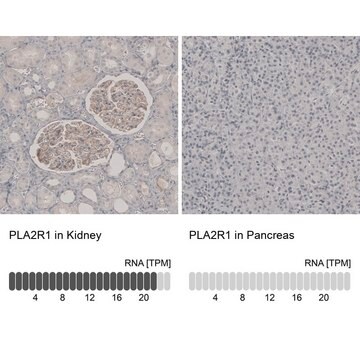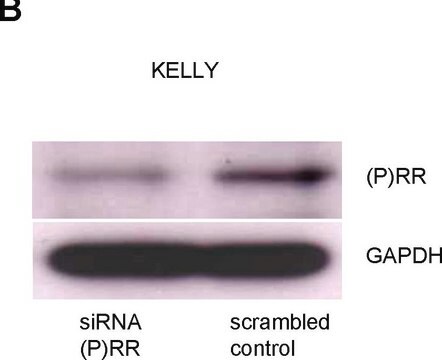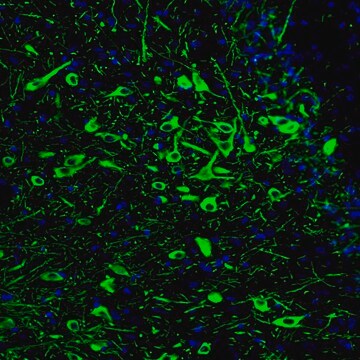SAB4200663
Anti-Copeptin antibody produced in rabbit
affinity isolated antibody
Synonym(s):
CT-proAVP
About This Item
Recommended Products
biological source
rabbit
Quality Level
antibody form
affinity isolated antibody
antibody product type
primary antibodies
species reactivity
human
concentration
~1 mg/mL
technique(s)
immunoblotting: 0.25-0.5 μg/mL (recommended using recombinant human Copeptin trifluoroacetate)
immunohistochemistry: 20 μg/mL (recommended using mouse or human kidney sections)
immunoprecipitation (IP): 5-10 μg (recommended using recombinant human Copeptin trifluoroacetate (C8749).)
indirect ELISA: 0.25-0.5 μg/mL (recommended using human Copeptin trifluoroacetate (C8749) for coating.)
UniProt accession no.
shipped in
dry ice
storage temp.
−20°C
target post-translational modification
unmodified
Gene Information
human ... AVP(551)
General description
Immunogen
Application
- immunohistochemistry
- immunoblotting
- immunoprecipitation
- enzyme linked immunosorbent assay (ELISA)
Biochem/physiol Actions
Physical form
Disclaimer
Not finding the right product?
Try our Product Selector Tool.
Storage Class Code
12 - Non Combustible Liquids
WGK
nwg
Flash Point(F)
Not applicable
Flash Point(C)
Not applicable
Certificates of Analysis (COA)
Search for Certificates of Analysis (COA) by entering the products Lot/Batch Number. Lot and Batch Numbers can be found on a product’s label following the words ‘Lot’ or ‘Batch’.
Already Own This Product?
Find documentation for the products that you have recently purchased in the Document Library.
Our team of scientists has experience in all areas of research including Life Science, Material Science, Chemical Synthesis, Chromatography, Analytical and many others.
Contact Technical Service






